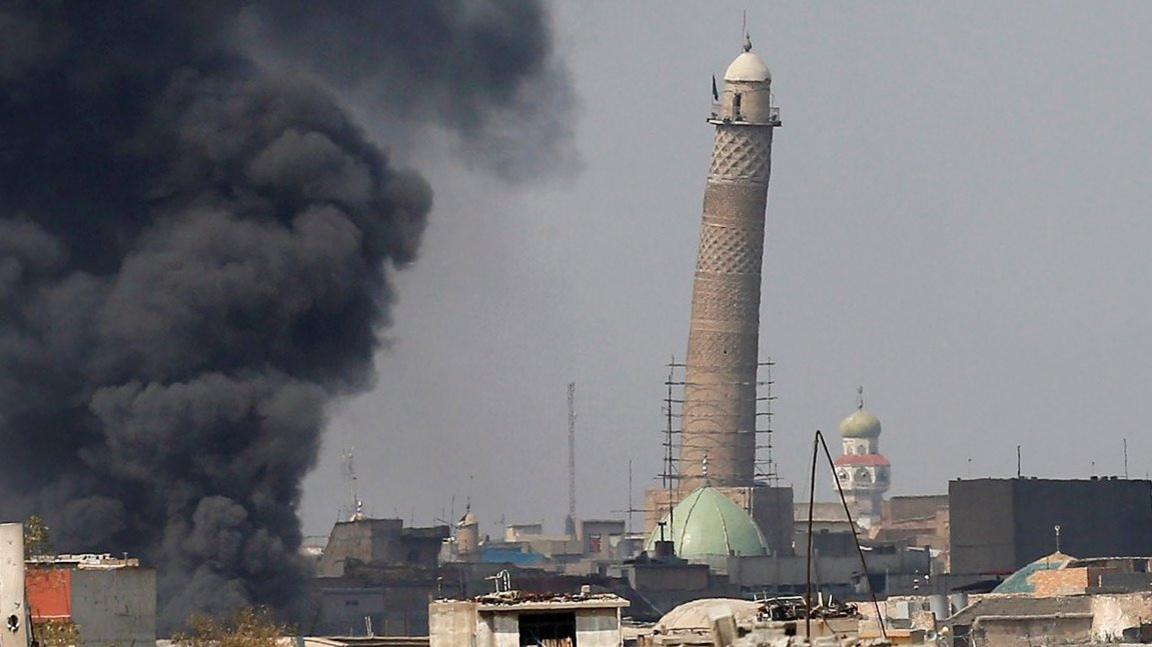Mosul violinist Ameen Mukdad returns to play amid ruins
- Published
Ameen Mukdad played the violin in secret under IS rule
A violinist has given his first public performance in the Iraqi city of Mosul since so-called Islamic State took control there nearly three years ago.
Ameen Mukdad, 28, who had played in secret at home until fighters seized his instruments, performed at a site revered by both Muslims and Christians.
He had left for Baghdad when the militants were pushed out of east Mosul, but returned on Wednesday.
Iraqi forces have retaken large parts of the city in a six-month assault.
Just 20 people watched the performance, during which explosions and gunfire could be heard coming from the west of the city, Reuters reported.
IS had banned music along with satellite dishes, mobile phones, cigarettes and even the keeping of birds, publicly killing or flogging those who did not comply with its austere rule.
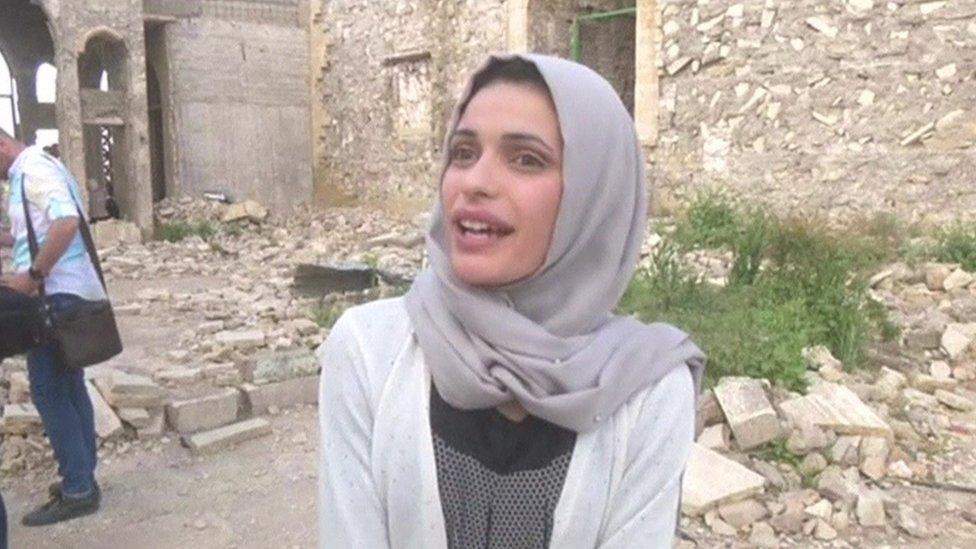
Tahany Saleh: "We still want to be happy, we want to listen to music"
Mr Mukdad played music he had written under IS control.
"I want to take the opportunity to send a message to the world, and send a strike against terrorism and all ideologies which restrict freedom, that music is a beautiful thing," he told Reuters.
"Everyone who opposes music is ugly," he said.
The concert, publicised on social media, was held at the site reputed to be the burial place of the prophet known as Jonah in the Bible, and Younis in the Koran.
'We risked death'
The militants blew up parts of the archaeological site in 2014.
"The performance was like a dream," said Tahany Saleh, who watched the concert.
"This is Mosul with all its beauty... You can see all this damage but still we still want to be happy, we want to listen to music," she told Reuters.
According to an interview with the Daily Telegraph, the last time Mr Mukdad played in public in the city was 10 June 2014, the day IS took control of the city, when he stood on the roof of his house and played a solemn melody.
The largely self-taught musician told the paper he then packed his violins, guitars and a cello into his basement, and fled to Baghdad along with his family.
When he returned months later to try to collect his instruments, the militants allowed him into the city but would not let him leave.
'The dream came true'
He then continued to play secretly, with blankets over the windows, until the IS morality police confiscated all his musical possessions, including his CDs, and vowed to return to punish him.
He then hid in a relative's house, where he made himself an instrument out of wood and old guitar strings.
When the Iraqi government soldiers defeated IS in the neighbourhood in mid-January, he left for Baghdad to rejoin his family.
"People always liked music but were afraid to acknowledge this because of them [Islamic State]. We opposed them and we risked death," Mr Mukdad told Reuters.
Wednesday's appearance was apparently partly set up by the blogger behind the Mosul Eye website, which describes its author as an "independent historian" in the city.
In a post on Thursday, external, the writer describes impulsively contacting Mr Mukdad earlier this week, to suggest a concert the following day - and then helping him to arrange his travel and security clearances.
The message of the event was "to tell the world that Mosul is free although half of it is still under fire, it's looking for books and music to be born again", the post read.
"The dream came true, this is as simple as it is. All of it was a dream, and now, it become reality."
Recalling the years under IS, one of Mr Mukdad's friends, another musician, Hakam Ana, told Reuters: "I stopped playing because I was too afraid, but Ameen kept going".
"We tried persuading him that he could get easily killed, but he kept playing."
- Published19 April 2017

- Published18 April 2017
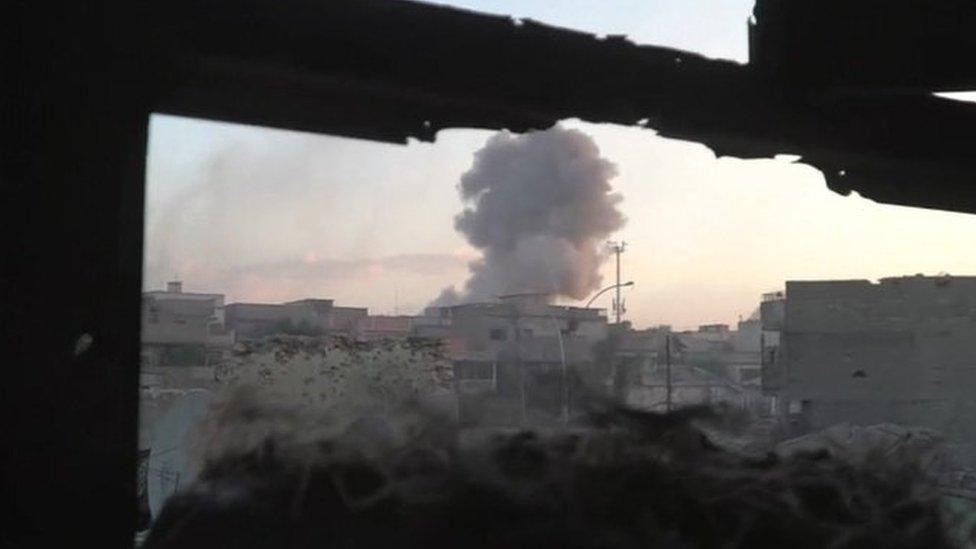
- Published14 April 2017
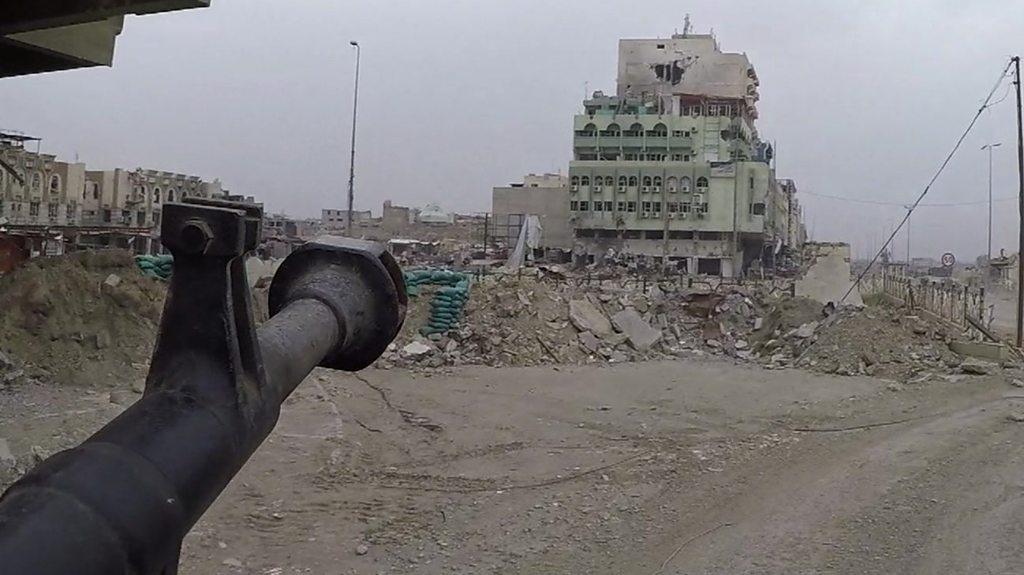
- Published3 April 2017
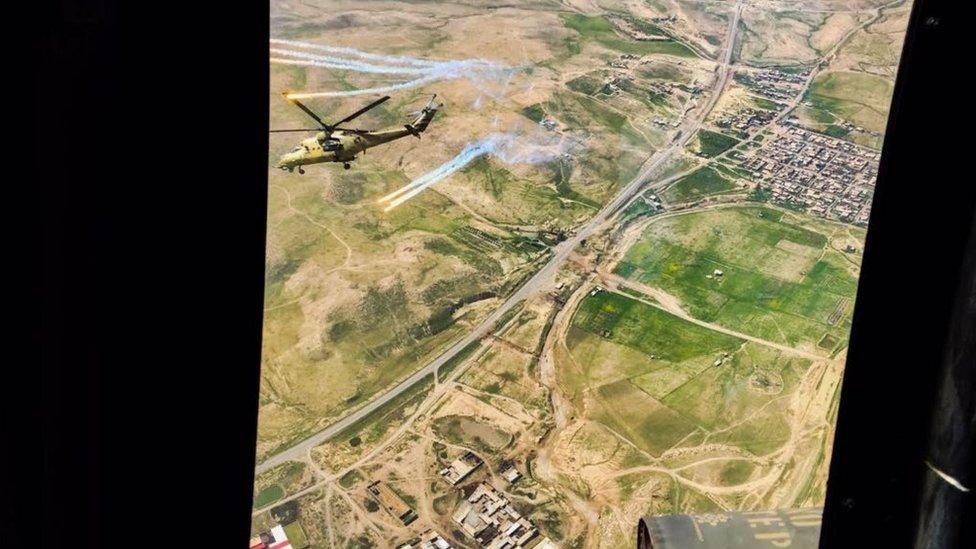
- Published11 April 2017

- Published31 March 2017
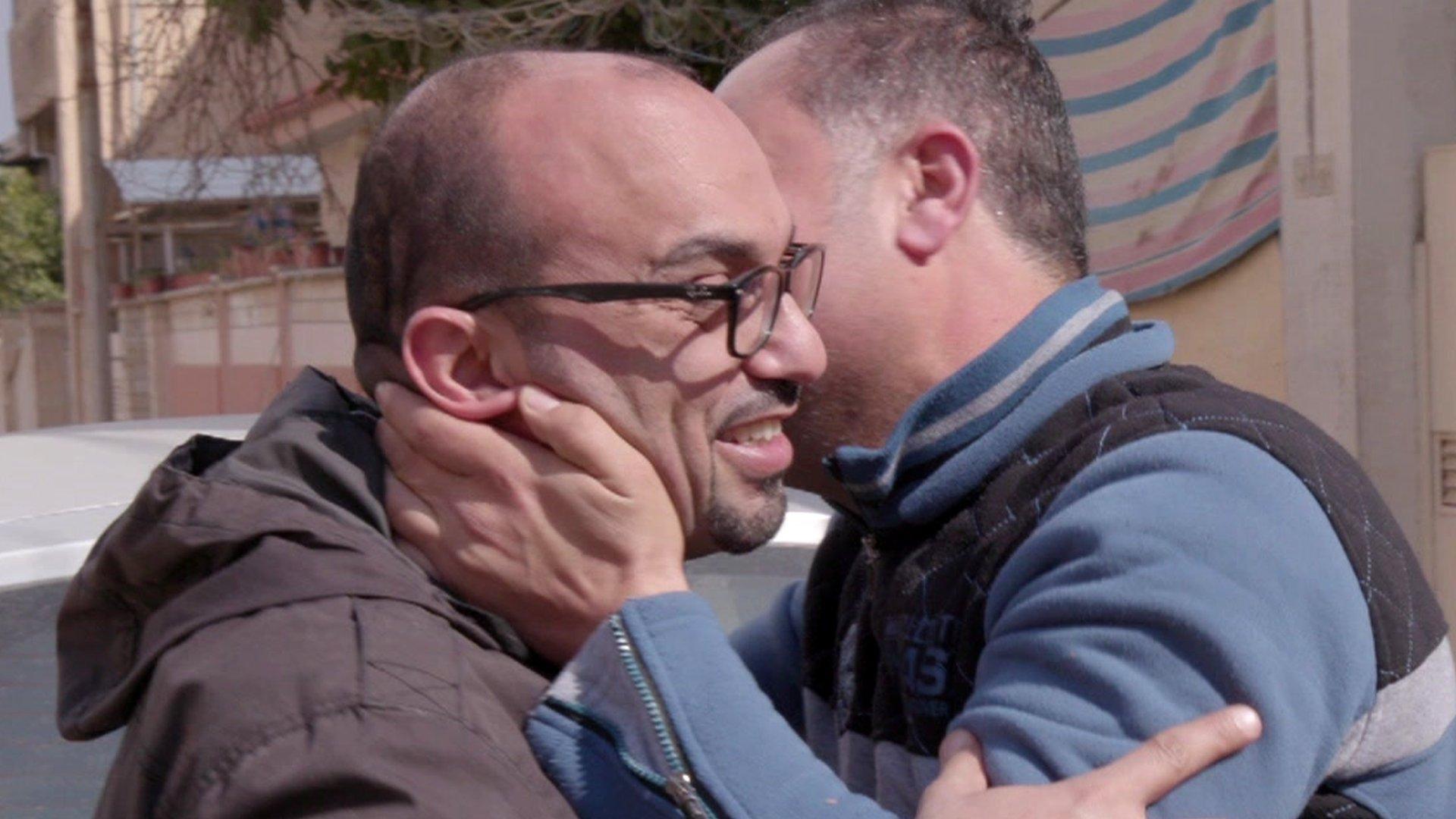
- Published2 April 2017
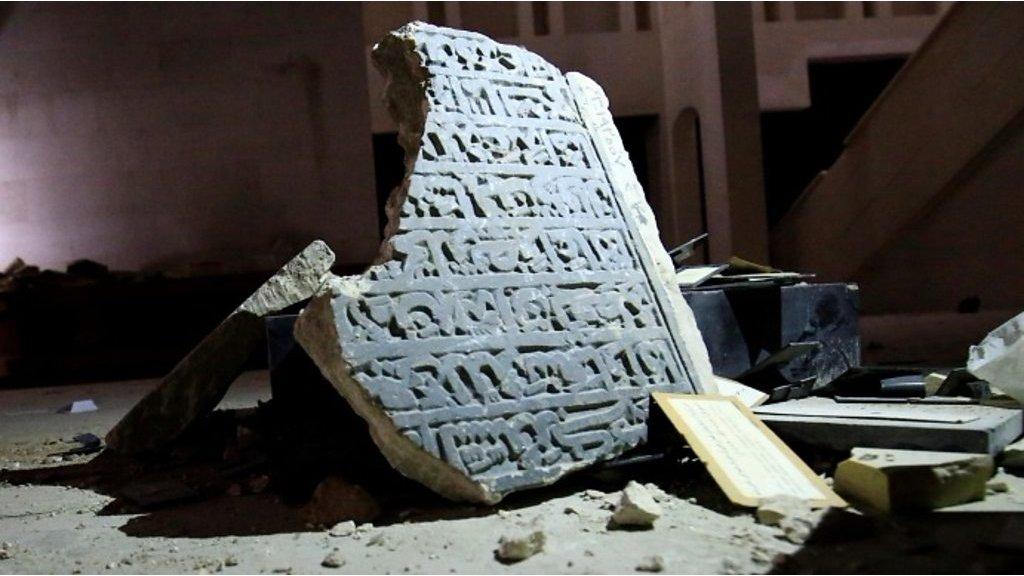
- Published21 June 2017
